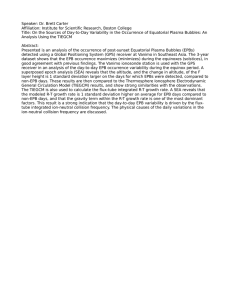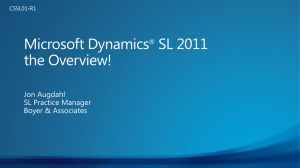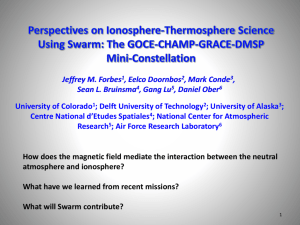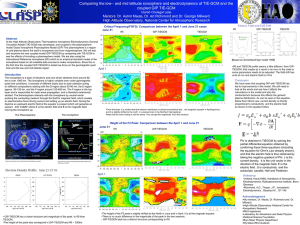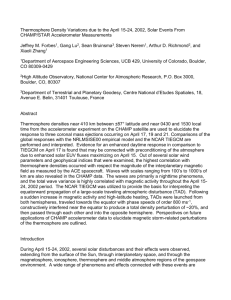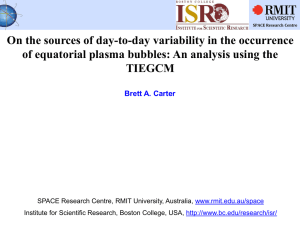Occurrence of High Latitude Neutral Density Peaks
advertisement
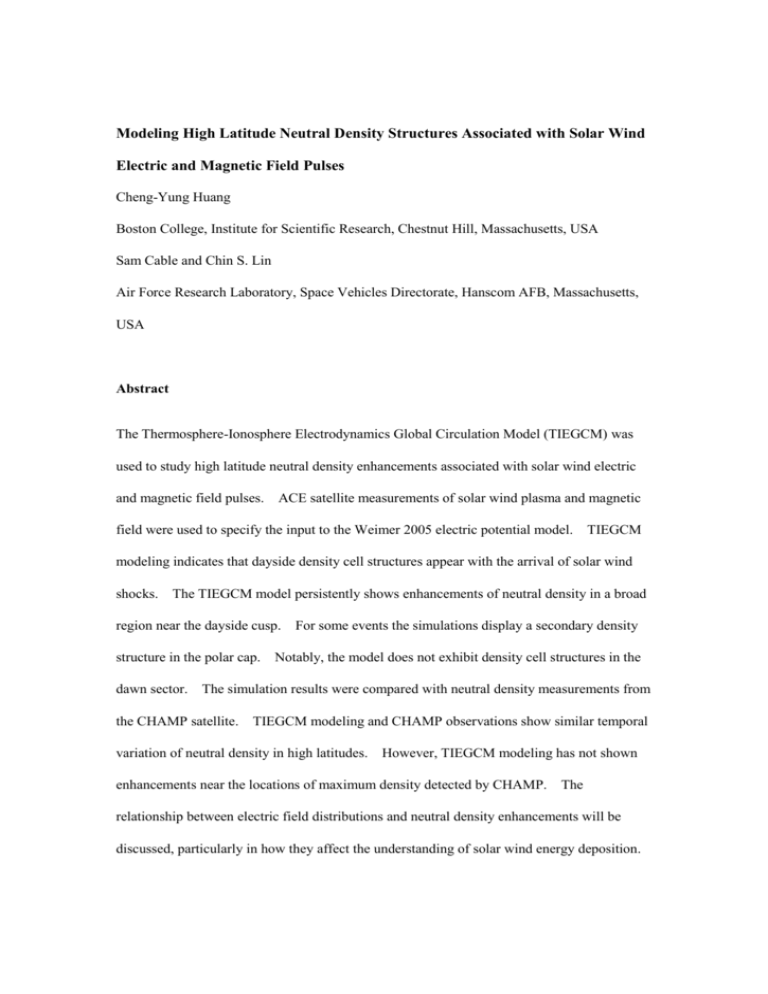
Modeling High Latitude Neutral Density Structures Associated with Solar Wind Electric and Magnetic Field Pulses Cheng-Yung Huang Boston College, Institute for Scientific Research, Chestnut Hill, Massachusetts, USA Sam Cable and Chin S. Lin Air Force Research Laboratory, Space Vehicles Directorate, Hanscom AFB, Massachusetts, USA Abstract The Thermosphere-Ionosphere Electrodynamics Global Circulation Model (TIEGCM) was used to study high latitude neutral density enhancements associated with solar wind electric and magnetic field pulses. ACE satellite measurements of solar wind plasma and magnetic field were used to specify the input to the Weimer 2005 electric potential model. TIEGCM modeling indicates that dayside density cell structures appear with the arrival of solar wind shocks. The TIEGCM model persistently shows enhancements of neutral density in a broad region near the dayside cusp. For some events the simulations display a secondary density structure in the polar cap. Notably, the model does not exhibit density cell structures in the dawn sector. The simulation results were compared with neutral density measurements from the CHAMP satellite. TIEGCM modeling and CHAMP observations show similar temporal variation of neutral density in high latitudes. However, TIEGCM modeling has not shown enhancements near the locations of maximum density detected by CHAMP. The relationship between electric field distributions and neutral density enhancements will be discussed, particularly in how they affect the understanding of solar wind energy deposition.

